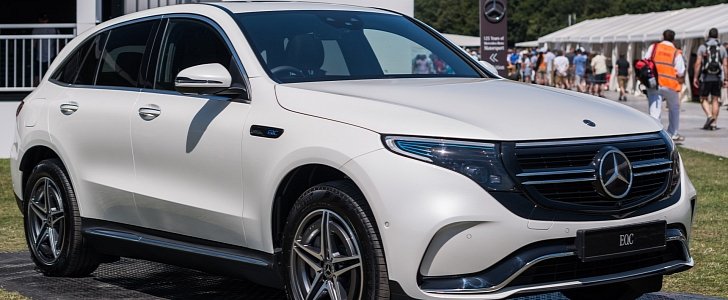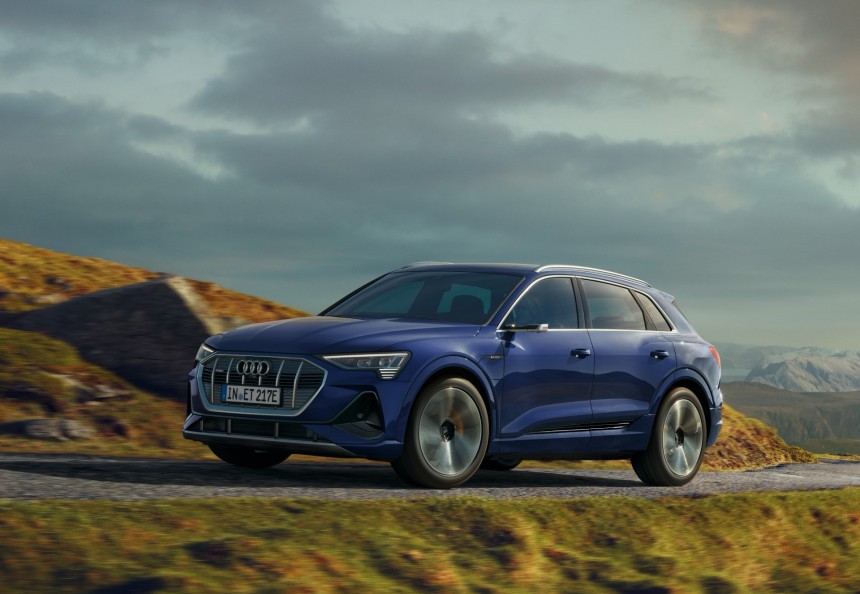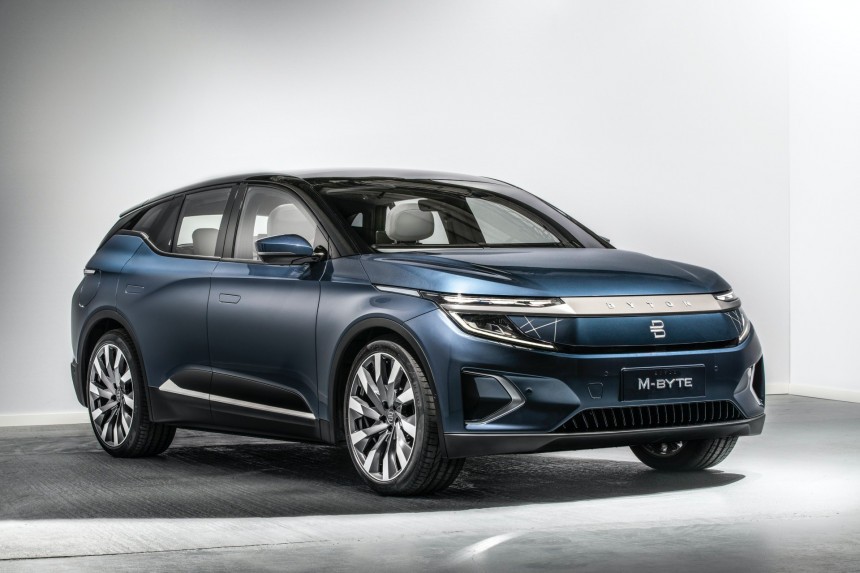Today’s longest-range EVs are actually some of the least efficient when it comes to how many kWhs they use over a set distance. These long range electric cars achieve their excellent autonomy thanks to their high capacity battery packs that offset their thirst for electricity.
In fact, the most frugal EVs out now are small cars with comparatively small batteries, yet they were engineered with the utmost efficiency in mind. Granted, none of this highly efficient electric cars offer the kind of neck-snapping acceleration that their bigger counterparts do, but performance doesn’t matter in this article - it’s all about current guzzling.
Battery packs have grown to (and will soon exceed) 100 kWh and this enables electric cars not to have to be that efficient, and still provide excellent range. It’s essentially like having a big car with a big engine fed from an equally big gas tank, only with electric motors and batteries.
One great example of this is Audi’s new line of e-tron models, none of which is particularly efficient. The worst offender in this regard is the e-tron 55 quattro, rated according to the WLTP test cycle as using 22.4 kWh/100km, which is not very good at all, if you compare it to the more efficient side of the EV spectrum.
The e-tron 55 quattro does have a quoted range of 436 km, but only because it has a big 95 kWh battery pack it can draw from.
Another car that actually shares its platform and many mechanical bits with these new electric Audis is the Porsche Taycan. And even though it is lower and sleeker than they are, in its most powerful Turbo S guise, it’s even less efficient than they are.
It has a 93.4 kWh battery pack that bestows it with a range of 412 km, according to WLTP guidelines. But its rated consumption of 24.5 kWh/100km makes it one of the worst-performing EVs when it comes to efficiency. Granted, lower-powered versions of the Taycan are much better in this respect, although they are nowhere near as blisteringly quick as the Turbo S - it can sprint to 100 km/h from naught in 2.8 seconds.
Next up on this list is the Jaguar i-Pace with its 90 kWh battery pack that allows it to travel up to 470 km on a single charge. It has a WLTP-rated consumption of 22 kWh/100km, which is not very good, even though Jaguar has quite clearly done its best to make this SUV as efficient as possible; at least it’s quite quick, sprinting from 0 to 100 km/h in 4.8 seconds
Mercedes EQC 400 is one of the most well rounded EVs at any price point, but it too is not particularly efficient. This all-electric SUV is currently the Three Pointed Star’s only electric vehicle on sale and it has an efficiency rating of around 21 kWh/100km - it has an 85 kWh battery pack and a WLTP range of 417 km.
Big electric SUVs really do draw more from their battery packs, which is why it’s no surprise that the upcoming Byton M-Byte high rider isn’t especially frugal. No official data is out, but it has a 105 kWh battery pack and WLTP range of 435 km - this means it needs 22-23 kWh/100km on average (a big chunk of which goes towards powering its gigantic infotainment screen).
The last vehicle that deserves to be mentioned in this company is the Tesla Model X Performance. There is no official data to back this up, but between its 100 kWh battery pack and WLTP range of 487 km, we estimate it uses around 21-22 kWh/100km.
At least the Model X Performance is properly quick, sprinting to 100 km/h from standstill almost as fast as the Porsche Taycan Turbo S, in 2.9 seconds, on to its top speed of 250 km/h.
Battery packs have grown to (and will soon exceed) 100 kWh and this enables electric cars not to have to be that efficient, and still provide excellent range. It’s essentially like having a big car with a big engine fed from an equally big gas tank, only with electric motors and batteries.
One great example of this is Audi’s new line of e-tron models, none of which is particularly efficient. The worst offender in this regard is the e-tron 55 quattro, rated according to the WLTP test cycle as using 22.4 kWh/100km, which is not very good at all, if you compare it to the more efficient side of the EV spectrum.
Another car that actually shares its platform and many mechanical bits with these new electric Audis is the Porsche Taycan. And even though it is lower and sleeker than they are, in its most powerful Turbo S guise, it’s even less efficient than they are.
It has a 93.4 kWh battery pack that bestows it with a range of 412 km, according to WLTP guidelines. But its rated consumption of 24.5 kWh/100km makes it one of the worst-performing EVs when it comes to efficiency. Granted, lower-powered versions of the Taycan are much better in this respect, although they are nowhere near as blisteringly quick as the Turbo S - it can sprint to 100 km/h from naught in 2.8 seconds.
Next up on this list is the Jaguar i-Pace with its 90 kWh battery pack that allows it to travel up to 470 km on a single charge. It has a WLTP-rated consumption of 22 kWh/100km, which is not very good, even though Jaguar has quite clearly done its best to make this SUV as efficient as possible; at least it’s quite quick, sprinting from 0 to 100 km/h in 4.8 seconds
Mercedes EQC 400 is one of the most well rounded EVs at any price point, but it too is not particularly efficient. This all-electric SUV is currently the Three Pointed Star’s only electric vehicle on sale and it has an efficiency rating of around 21 kWh/100km - it has an 85 kWh battery pack and a WLTP range of 417 km.
The last vehicle that deserves to be mentioned in this company is the Tesla Model X Performance. There is no official data to back this up, but between its 100 kWh battery pack and WLTP range of 487 km, we estimate it uses around 21-22 kWh/100km.
At least the Model X Performance is properly quick, sprinting to 100 km/h from standstill almost as fast as the Porsche Taycan Turbo S, in 2.9 seconds, on to its top speed of 250 km/h.









